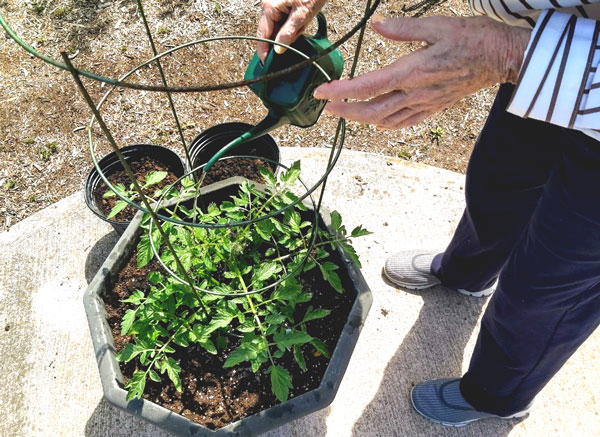The Alzheimer Society of Canada (2022) projects a 187% increase in people living with dementia in Canada by 2050 (p.38), highlighting the growing strain on the country’s healthcare system. When a husband and wife both have dementia, they can feel lost if they’re not able to continue living together. And yet, that’s often what happens to couples who need dementia care. They become separated—sometimes for the first time in decades—losing not just their home, but each other’s support.
“We want to do everything we can to help life partners stay together as they age; it’s the right thing to do,” said Randy Delorey, Minister of Health and Wellness(2020). “Couples should be able to stay together even if one person may need a different level of care” (para. 3).
While some long-term care homes offer a “spousal reunification program,” the wait can be lengthy. Families often struggle with the uncertainty of separation and the emotional toll it takes on both parents.
Highview Residences: A Home Where Couples Can Stay Together
 Families often notice a sense of ease in their loved ones after moving to Highview, making a meaningful difference not just for the couple, but for the entire family. “It’s not just about being in the same place — it’s about the sense of security that comes with being together,” says Joy Birch, Chief Operating Officer.
Families often notice a sense of ease in their loved ones after moving to Highview, making a meaningful difference not just for the couple, but for the entire family. “It’s not just about being in the same place — it’s about the sense of security that comes with being together,” says Joy Birch, Chief Operating Officer.
It also helps that Highview specializes in dementia care and understands the nuances of how a couple might need to be supported. “One spouse might have dementia, while the other has mobility challenges, Parkinson’s, or general frailty. Together, they are an intact and inseparable unit. Apart, they can be lost and heartbroken.”
A Story of Reconnection
Liz Shantz saw firsthand the importance of keeping couples together. Her cousin, Audrey, and Audrey’s husband, Ross, both had dementia. As their substitute decision-maker, Liz worked to ensure they both received the best care possible at Highview Kitchener, but not until after they became separated as a result of their dementia.
“Audrey has the dementia with forgetfulness,” Liz explains. “Ross had the dementia with ‘I don’t trust a soul.’ He was very paranoid, which caused a lot of troubles.” When Ross was hospitalized with heart issues, Audrey struggled without him.
“She would come into the room in the middle of the night and ask where Ross was, forgetting that he was in the hospital,” Liz says.
Even after Ross returned home, their challenges persisted. They forgot to take their medication, to eat, and to maintain their daily routines.
Recognizing that it was no longer safe for them to live at home, Liz and other family members moved them to Highview Kitchener. Ross initially struggled with the transition, but the difference became clear once the couple was reunited at Highview.
“Although they weren’t a lovey-dovey couple, they needed each other,” Liz says. “Ross needed Audrey for her eyes (he had poor vision), and she needed him for the support. It was such a relief to know that they were cared for and that they were together.”
The Highview Difference
For many couples, staying together makes them feel whole, even if they can’t always express it. Whether it’s a lifelong commitment to their wedding vows or simply the comfort of knowing their partner is near, the emotional and mental benefits of staying together are undeniable.
Unlike traditional long-term care homes, where reunification can take years, Highview offers a faster, more compassionate alternative. Both spouses don’t need to have dementia to live at Highview—if one has physical disabilities or requires extra support, they can still remain together in a secure, specialized home.
A Better Option for Families
If you’re facing the difficult decision to move a loved one to a dementia care home, Highview will prioritize keeping couples together, ensuring they receive the care they need without losing each other.
Contact Highview Residences today to learn how your loved ones can stay together in a safe, supportive environment.
References:
Alzheimer Society of Canada. (2022). Navigating the path forward for dementia in Canada: The Landmark Study Report #1. https://alzheimer.ca/en/research/reports-dementia/navigating-path-forward-landmark-report-1
Delorey, R. (2020, February 28). Keeping couples together in long-term care. Government of Nova Scotia. https://news.novascotia.ca/en/2020/02/28/keeping-couples-together-long-term-care

